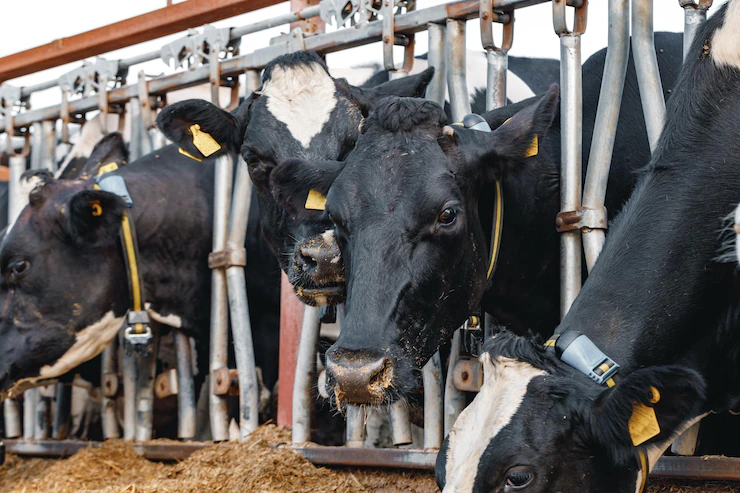Beef production plays a significant role in South Africa’s agricultural sector and economy. With its vast landscapes and suitable climate for grazing, South Africa has a thriving cattle industry that contributes to both domestic consumption and exports. Nurturing and sustaining this industry requires various considerations, including breeding practices, animal welfare, land management, and market dynamics.
- Breeding and Genetics: Maintaining a thriving cattle industry begins with selecting appropriate breeds and improving genetics. South Africa has various cattle breeds suited for different purposes, such as the Bonsmara, Afrikaner, and Nguni. Breeders focus on traits like meat quality, disease resistance, and adaptability to local conditions. Genetic improvement programs, such as selective breeding and artificial insemination, can help enhance the productivity and resilience of the cattle population.
- Animal Health and Welfare: Ensuring the health and welfare of cattle is crucial for sustainable beef production. Regular veterinary care, vaccination programs, and disease prevention measures are essential to minimize the risk of outbreaks and maintain the overall well-being of the animals. Adequate nutrition, access to clean water, and proper housing are also important aspects of animal welfare that need to be prioritized.
- Grazing Management and Land Conservation: South Africa’s cattle industry heavily relies on extensive grazing systems, making effective land management crucial. Sustainable grazing practices, such as rotational grazing and controlled stocking rates, help prevent overgrazing and soil degradation. Implementing proper fencing and water infrastructure can facilitate effective land use and reduce pressure on natural resources.
- Environmental Sustainability: Addressing the environmental impact of beef production is increasingly important. Sustainable farming practices, such as implementing conservation agriculture techniques, minimizing chemical use, and managing waste, can help mitigate negative environmental effects. Additionally, exploring alternative feed sources and improving feed efficiency can reduce the industry’s carbon footprint.
- Market Access and Consumer Preferences: Understanding market dynamics and consumer preferences is vital for the success of the cattle industry. Export opportunities, both within Africa and globally, provide avenues for growth and profitability. Compliance with international standards and certifications, such as animal welfare and food safety protocols, can enhance market access. Furthermore, responding to changing consumer demands, such as the preference for organic or ethically produced beef, can contribute to the industry’s long-term viability.
- Research and Innovation: Investing in research and innovation is crucial for advancing the cattle industry. Ongoing research can focus on developing new technologies, improving breeding techniques, and finding sustainable solutions to challenges such as climate change and disease control. Collaboration between government institutions, research organizations, and industry stakeholders is essential to foster innovation and knowledge sharing.
- Education and Training: Developing skilled professionals within the cattle industry is vital for its growth. Providing education and training programs for farmers, herd managers, veterinarians, and other stakeholders helps improve knowledge and skills related to modern beef production practices. These programs can cover topics such as herd management, animal health, breeding techniques, and business management.
By considering these factors and implementing sustainable practices, South Africa can nurture a thriving cattle industry that contributes to food security, economic growth, and environmental sustainability.
Join 'Farmers Mag' WhatsApp Channel
Get the latest Farming news and tips delivered straight to your WhatsApp
CLICK HERE TO JOIN






